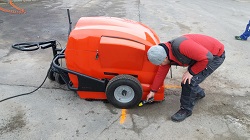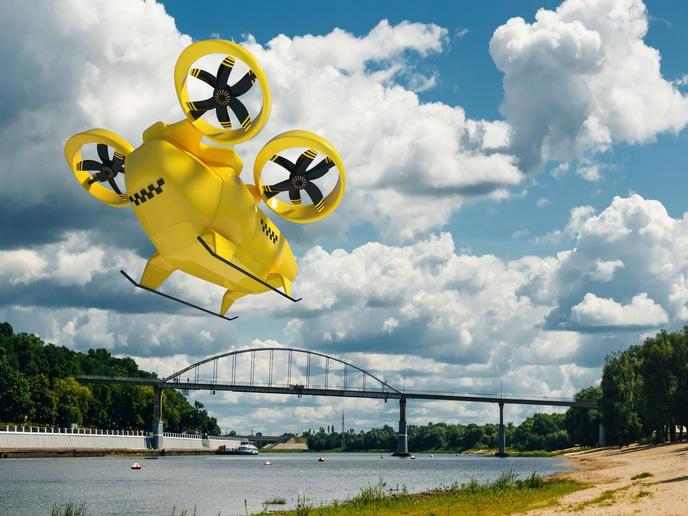Microwave technology for asphalt surface repairs
Benefiting infrastructure owners and operators, enhancing road safety and enabling seamlessness of European transport, microwave technology is set to usher in a new era for asphalt road surfaces. It promises durable, seamless repairs, and compared to currently applied technologies, it is simple, faster to apply, and more effective and economic. These are the highlights of a feasibility study carried out by an EU-funded team. The RADARR project had just one core goal and deliverable: “to prepare a feasibility study for commercialisation of the FT3 machine,” notes Mr Václav Mlynařík, a partner on the project. The device uses microwave energy to effectively repair asphalt roads and surfaces, including common potholes. Groundbreaking solution for asphalt repairs When designing the feasibility study and conducting related market research, partners engaged with stakeholders to discuss the FT3 machine’s features and identify issues crucial for successful commercialisation. “Our customers put strong emphasis on repair time, operability and quality,” says Mlynařík. “These results helped to design a business plan for commercialisation of the FT3 machine.” Optimisation of product features was proposed to better fulfil customer needs, and findings were incorporated into the development strategy. The suggested optimisation will make it possible to deliver an innovative solution for asphalt repairs, surpassing the quality of technologies currently in use. “We believe that the microwave repair technology will shortly become a new standard for high-quality repairs of asphalt pavement,” states Mlynařík. In the years to come, it will be possible to offer a completely new technology that can improve the quality of the EU’s road infrastructure system. Beyond its being operable year-round, another advantage is the potential for important savings in resources needed for road maintenance. Further, depending on the quality of the road’s sub-base, the microwave technology will double the lifespan of presently applied repairs, which translates to significant savings in general and a great market opportunity for its developer, FUTTEC. Advancing technology and know-how RADARR also developed a complementary product: an asphalt microwave oven, which has recently been prototyped. The development team is working to increase the oven’s power output to deliver the means for preparing hot asphalt mixture at the repair site. Locally prepared hot asphalt mixture will accelerate repair time and could also be used for conventional repairs. Project partners participated in trade fairs and conferences and have demonstrated the technology to potential customers. They have cooperated with the Technology Centre of the CAS (national contact point (NCP) in the Czech Republic) and attended their seminars and workshops related to the European Commission’s SME Instrument. Mlynařík noted the team’s appreciation for the NCP’s coaching service: “The coaching really helped us to identify crucial points and concentrate on them at the beginning of the project.” From feasibility to commercialisation Work will continue towards commercialisation of the FT3 machine, with sights set on Phase 2 of SME Instrument to help in this regard. A Phase 2 grant agreement would speed up the costly final stages required to bring the FT3 to market. “We plan to optimise the product features and offer it on the market together with the complementary asphalt microwave oven that will be used for local pavement repairs and other accessories,” Mlynařík explained. RADARR’s feasibility study marks an important step towards reaching the overall commercialisation goal and attracting potential investors. “Together we will be able to offer a complex solution for asphalt pavement repairs.”
Keywords
RADARR, microwave technology, FT3 machine, asphalt surface, asphalt pavement, pavement repairs







